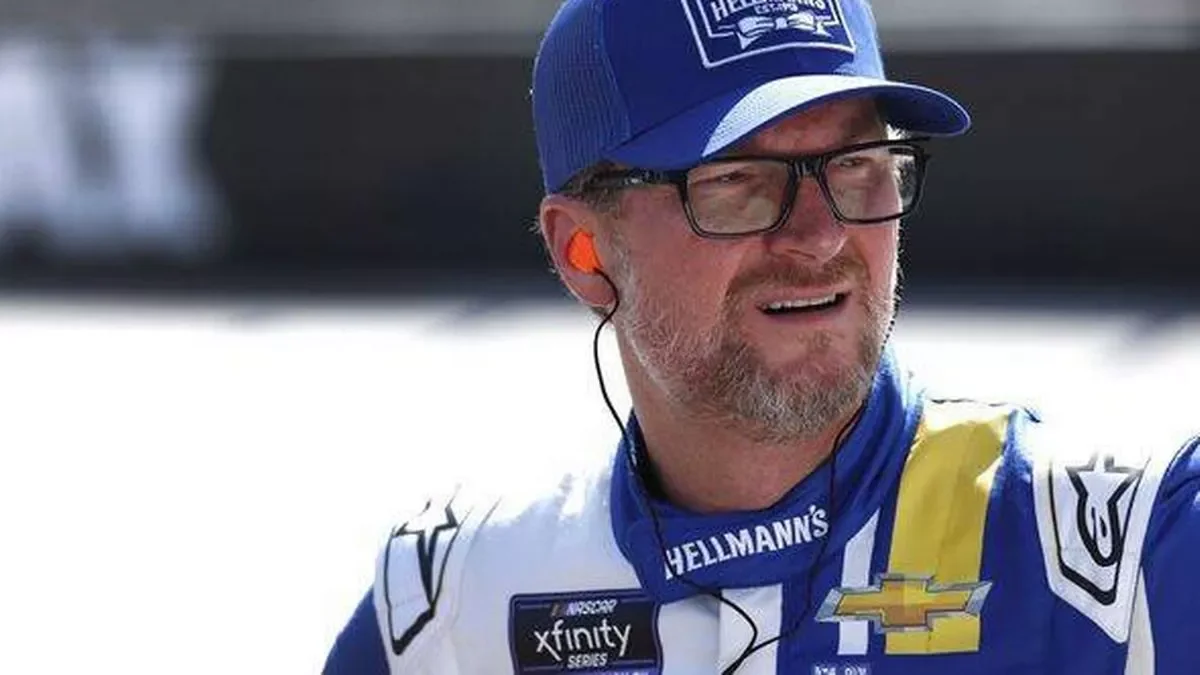Dale Earnhardt Jr. has brought attention to the significance of therapy, emphasizing its impact—especially for emerging talents navigating the challenges of NASCAR. In recent comments, the NASCAR Hall of Famer discussed how therapy can support young drivers facing pressure, criticism, and uncertainty in a sport known for its intense environment.
The topic of Dale Earnhardt Jr therapy benefits emerged after he spoke with Rajah Caruth, a promising driver in the Truck Series who has faced both success and setbacks during the 2025 season. Caruth’s journey, marked by resilience and moments of self-doubt, prompted an open dialogue about mental health with Earnhardt Jr., a figure with extensive experience in professional racing. Despite performing strongly in the championship playoffs, Caruth acknowledged episodes of insecurity, reinforcing the need for support beyond physical training.
The Complex Pressures of Modern NASCAR Competition
With NASCAR recognized as a top tier of stock racing, entry and advancement remain challenging for even the most dedicated athletes. The Cup Series, in particular, demands both technical mastery and mental fortitude, as young competitors attempt to prove themselves against experienced veterans. The high expectations often result in self-doubt, compounded by constant scrutiny from fans, analysts, and team personnel.
Dale Earnhardt Jr.—who built his reputation competing in this high-pressure environment—underscored how therapy provides essential tools for drivers. He pointed out that, beyond the visible stresses of racing, additional strain comes from public commentary and online criticism. Amid this noise, focusing on personal growth can become exceptionally difficult for young athletes striving for excellence in every race.
Dale Earnhardt Jr. Champions Transparency in Mental Health
Reflecting on his own career and insights gained from discussions with younger drivers, Earnhardt Jr. stressed the necessity of seeking professional support to navigate the “complex” realities faced by racers today. He explained that engaging in therapy offers valuable perspectives on managing criticism, building stronger personal relationships, and enhancing teamwork—all crucial for sustained success both on and off the track. According to Earnhardt Jr., blocking out distractions and concentrating on what truly matters can make a substantial difference in a driver’s career.
“I think it’s (therapy) very valuable for guys that are in sports because the environment today is just really complex. There’s a lot going on, a lot of conversations happening around you and publicly online. Being able to manage that, block out the noise, and know what to focus on is important. I get some really valuable information in those conversations about managing expectations, how to be a better friend, a better partner, and also, in a professional sense, how to be a better teammate.”
—Dale Earnhardt Jr., Dale Jr Download.
This candid assessment by Earnhardt Jr. aligns with ongoing efforts in professional sports to recognize and address mental health challenges as part of athlete development. He emphasized that younger drivers, in particular, could benefit from tools that help them maintain focus and composure amid a rapidly changing and often unpredictable racing landscape.
Facing Discomfort for Growth: Therapy’s Role in Driver Development
The emotional and psychological pressures do not stop when a NASCAR driver enters the cockpit; ongoing concerns about future contracts, job security, and physical risk all weigh heavily. Earnhardt Jr. acknowledged that, while therapy can be daunting, it yields rewards only when approached with honesty and openness. He advocated for vulnerability during sessions so drivers can fully benefit from the process—even if it means confronting deeply personal or uncomfortable topics.
“It’s not always comfortable, but you get out what you put in. The more transparent you are, the more benefit you’ll get from it. I found that interesting because it’s not something I would have expected you to be vocal about.”
—Dale Earnhardt Jr., Dale Jr Download.
He shared that the willingness to share struggles is not always an easy step, especially in a culture that often prizes toughness and self-reliance. Yet, Earnhardt Jr.’s advocacy of mental health support sends a strong message to other drivers that prioritizing personal well-being can enhance performance as much as technical preparation.
The Growing Spotlight on NASCAR’s Mental Wellbeing
As NASCAR’s reach expands and the sport’s audience grows globally, the spotlight on its drivers continues to intensify. High expectations and constant monitoring mean every mistake, triumph, and moment of vulnerability is magnified. These circumstances create a climate where emotional resilience is increasingly vital for drivers like Chase Briscoe and Rajah Caruth, as well as seasoned figures such as Kevin Harvick.
With the competitive environment becoming even more demanding, Earnhardt Jr.’s push for mental health care and therapy resonates throughout the NASCAR community. His remarks are likely to influence young athletes, coaches, and organizations to prioritize psychological support alongside traditional training. For drivers navigating the complexities of career transitions, evolving contract situations, and the 24/7 scrutiny of the modern media cycle, therapy stands out as a practical and necessary strategy for long-term well-being and success.
The insights from Earnhardt Jr., delivered through the Dale Jr Download platform, highlight a growing awareness within NASCAR that the mental aspects of racing are just as critical as the physical and technical ones. As discussions around therapy and mental health become more open, drivers at all stages of their careers may find it increasingly acceptable and beneficial to seek help—potentially shaping a healthier, more supportive culture within the sport for years to come.
